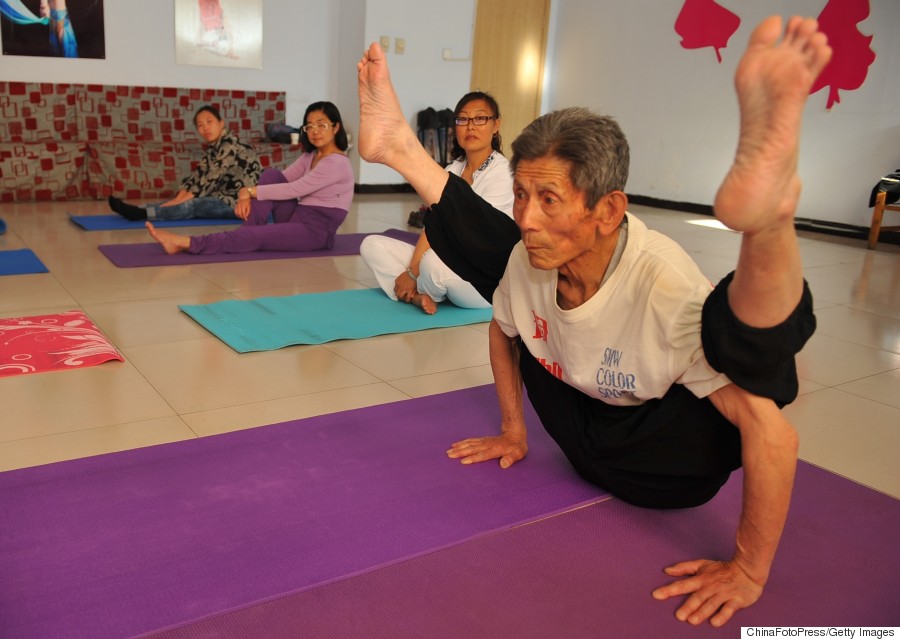
If you are just starting a yoga practice, you might wonder what the right yoga mat dimensions are. Although the standard size of a yoga mat is 24"x68", there are many options. Some are longer than others. Some can be shorter. You should choose a yoga mat that is at least 24 inches wide and at least 84 inches long for maximum performance. If you are shorter than that, you might need to try standard-sized yoga mats until you find the right one. For a better idea of the dimensions of a standard-sized mat, you might try a downward-facing pose such as a dog or other poses that require a firm grip.
Ideally, your mat will be a little thicker than the one you use in class. This will give you a better grip and help you to stay balanced. Don't worry! You can always buy a different mat if it doesn't meet your needs. If you can't afford the extra thickness, you can always buy a cheaper one. You can also choose a Yoga Cloud Ultra Thin 1'' which is extremely thick and available in four colors. You could also opt for a Sacred Yoga Mat. This mat is known to be one of the most comfortable. You can also be certain of its quality because it is 100% recyclable.

A thicker yoga rug will make you more stable and help prevent slippage. A thicker mat can be used if there is an injury or you are infirm. Thicker yoga mats are better suited to sitting or lying down. Thicker mats are best for those with weaker balance. The minimum thickness is 6-8mm. Thinner mats are recommended for people who are more susceptible to injury.
A smaller, more comfortable yoga mat may be best for beginners. For beginners, a 36-inch yoga mat is ideal. It is crucial to have a wide yoga mat. If you're doing poses that require a large amount of room, you should buy a large-sized mat. A long mat will give you the best flexibility during poses, but it will also make it difficult to balance on it.
Make sure to measure the thickness before purchasing a yoga mat. A thin mat will cause it to be too small. A thicker mat will provide additional support. For beginners, a thicker mat is more comfortable. A 5mm yoga-mat is ideal for a more advanced practitioner. For beginners, choose a mat with a thickness of 4mm. This thickness is perfect for home use. It is important to have a thicker floor for safety and comfort.

It is important to consider the width and shape of your yoga mat. Most traditional yoga mats are approximately 24 inches wide, while oversized models are 30 to 36 inches wide. You will be able to spread your weight more evenly on a wider mat. This will provide a more solid foundation. However, a thicker yoga mat may make it difficult to balance in standing poses. In certain cases, a wider yoga mat may be too narrow. A mat that measures 30 inches in width is ideal for those who need a wider mat.
FAQ
How can I improve my mental health?
Everybody needs to be healthy, especially if they are under stress at work, school or home. Exercise regularly, eat healthy meals, get enough sleep, and spend time with loved one are all ways to improve mental health. Exercise releases endorphins which makes us feel happier. Healthy eating habits can also help our bodies function well. A good night's sleep will give you energy throughout the day. Spending quality times with loved one improves relationships and reduces stress.
Why is mental well-being important for students
Students must be healthy mentally to be able both to concentrate on school and to do well academically. Without feeling like yourself, you will not be able perform well at school. Students with depression frequently miss class which can lead to low grades. This may lead to dropping out of high school and eventually college.
Talk to your teachers or parents if you are struggling with depression. They'll be able to help you get the care you need.
It is important to remember that not all people with depression need medication. Talk therapy is effective for many people. Talk therapy is effective for many people.
Why is mental well-being important?
Work, play, learn and love. Mental health is about our overall well-being. Mental health refers to the many factors that affect us daily, including our physical, psychological, spiritual, social, and environmental well-being. There are many ways you can take care of yourself mentally, emotionally, spiritually and socially. It doesn't take all of the above at once. Just start somewhere.
Understanding where you are at the moment is the first step towards improving mental health. To find out if your support system is adequate, take this quiz. If your score is low, you may want to make some lifestyle changes.
Imagine you have scored high. Let's now look at what you can do to maintain or improve your mental health.
-
Get enough sleep Get enough sleep to keep your brain alert and stimulated. Get at least 7 hours of sleep every night according to the American Academy of Pediatrics.
-
Exercise Regularly. Exercise releases endorphins in your body which makes you happier and less likely to stress. You should aim to exercise for 30 minutes five times a week.
Why is it important to improve your emotional health?
Well-being and happiness are tied to emotional well-being. You won't be able perform at your best if you aren't emotionally healthy. Depression can make it difficult for people to perform at their best. People with depression may also have anxiety, panic attacks and insomnia. The good news about these conditions is that they can be successfully treated using medication and therapy.
What are the 5 ways to improve wellbeing?
A person's well-being can be defined as their "state of mental, physical, spiritual, or social well-being". Several factors affect our well-being, such as family, work, health, relationships, community, environment, education, finances, etc. Your first step towards improving your health and well-being is to identify what areas of your daily life are lacking. Then, you can work to make these changes.
Here are five easy ways to improve your wellbeing
-
Exercise - It boosts endorphins, which can make us happier.
-
Sleep - More than 6 hours sleep per night can reduce stress and anxiety.
-
Nutrition - Eat healthy foods, such as fruits and veggies, to boost your mood.
-
Meditation – Meditation reduces stress and anxiety.
-
Socialization: Spending quality time together with our families and friends makes us happy.
What can I do to prevent mental health problems?
Preventing mental disorders is easy. Here are some things to keep in your mind.
-
Don't drink alcohol. You can have a negative effect on your mood and increase your chance of getting depressed.
-
Avoid drugs. Avoid using drugs.
-
Sleep enough. Sleep deprivation can make you feel anxious and depressed.
-
Exercise regularly. Exercise is good for your mood and makes you feel happier.
-
Choose healthy foods. Eaten junk food can make one feel slow and unmotivated.
-
Spend quality time with those you love. Spending time with those you love can improve your mood.
-
Have fun! Have fun and explore new things.
-
Retire from social media. Social media sites can make it difficult to feel alone and lonely.
-
Be kind to yourself. Treat yourself nicely, even if you aren't feeling great.
-
Ask for help. Ask for help if you are having difficulty coping. Talking with a friend or family member is a great way to get help.
-
Remember to be kind and gentle with yourself. Crying helps release tension and stress. It doesn't necessarily signify that something bad has happened.
-
Keep busy. Do something that you love.
-
Good hygiene is essential. You can feel unattractive and unkempt if you don't maintain good hygiene.
-
Stay connected. Stay positive by connecting to others.
-
Learn how you can relax. Meditation and yoga are two relaxation techniques that can help you deal with stress better.
-
Find meaning in the things you do. You can find fulfillment in your hobbies and work by finding meaning.
-
You should be focusing on the moment. When you focus on the present moment, you won't worry so much about the future.
-
Set goals. Goal setting can help you be motivated to reach your goals.
-
Do something kind for yourself. Being kind to yourself can help boost self-esteem.
-
Practice gratitude. Gratitude can help to appreciate all the blessings in your life.
-
Volunteer. Volunteering can provide a rewarding way to spend time with friends and make an impact on the world.
-
Give back. Giving back to others can make you feel fulfilled.
-
Be alert for warning signs. If you notice any changes in your behavior, don't hesitate to reach out for help.
What is Positive Psychology and Why Is It Important?
Positive psychology looks at what makes us feel better. The goal of positive psychology is to help individuals become happier, healthier, and wiser through self-improvement.
There are two kinds of positive psychology: trait and process. Trait positive psychology studies how people naturally tend to behave. The process of positive psychology studies how to use specific strategies to achieve certain goals.
Statistics
- Appropriate nutrition and exercise are likely among the most efficacious and cost-effective positive mental health interventions. (ncbi.nlm.nih.gov)
- According to the National Alliance of Mental Illness (NAMI), one in five Americans experiences mental health issues which translates to more than 40 million adults a year. (doctorondemand.com)
- More than 40 million adults in the United States have an anxiety disorder, but less than 37% of people seek mental health treatment for their symptoms. (talkspace.com)
- Similarly, for positive mental health, there is likely to be substantial agreement about some typical components (e.g., resilience to stress) 6, and controversy about more atypical components (e.g., career consolidation). (ncbi.nlm.nih.gov)
- Similarly, while there is some agreement about the boundaries of typical mental disorders 2, there is likely less agreement about those for positive mental health. (ncbi.nlm.nih.gov)
External Links
How To
How To Improve Your Memory
Everyone hopes to be able recall more about memory. But unfortunately, memory loss is something that happens to us all at some point in time. More than half of Americans aged 65 and older suffer from dementia.
You have many options for improving your memory. Here are three easy steps that you can start today:
-
Get More Fruits and Vegetables. Vegetables and fruit contain vitamins, minerals, antioxidants, fiber, and other phytochemicals that can improve brain function. They also contain vital nutrients that protect against neurological illnesses.
-
Get enough sleep. Sleep deprivation has been linked to poor concentration and memory loss. Make sure you get seven to eight hours of restful sleep each night.
-
Take A Walk. Walking stimulates blood flow to the brain, which improves memory. Walking helps you look slimmer, healthier, and more energetic.